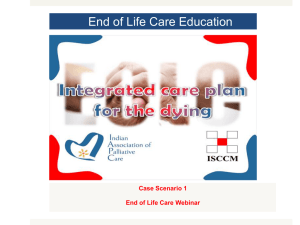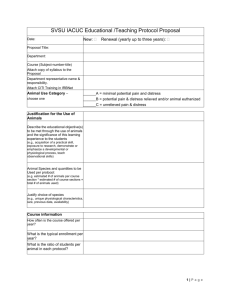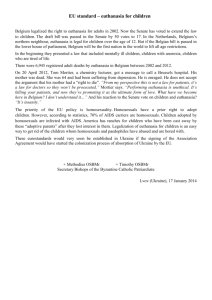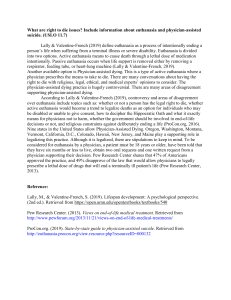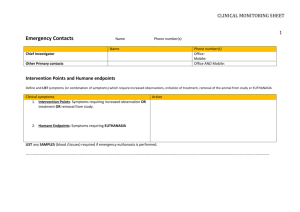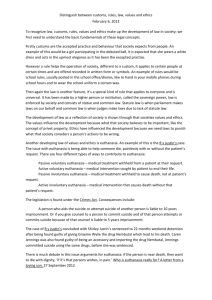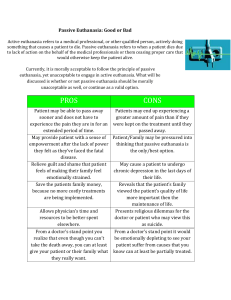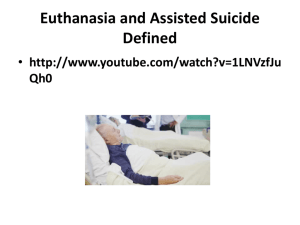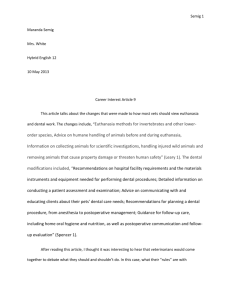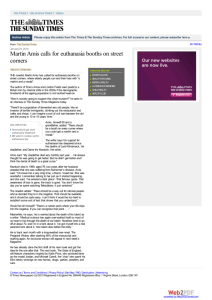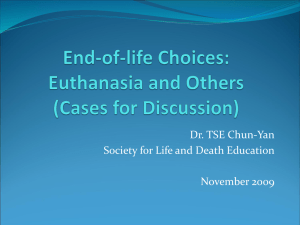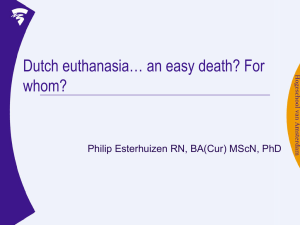English 3 sept 2009 1a parte - Università degli Studi di Urbino
advertisement
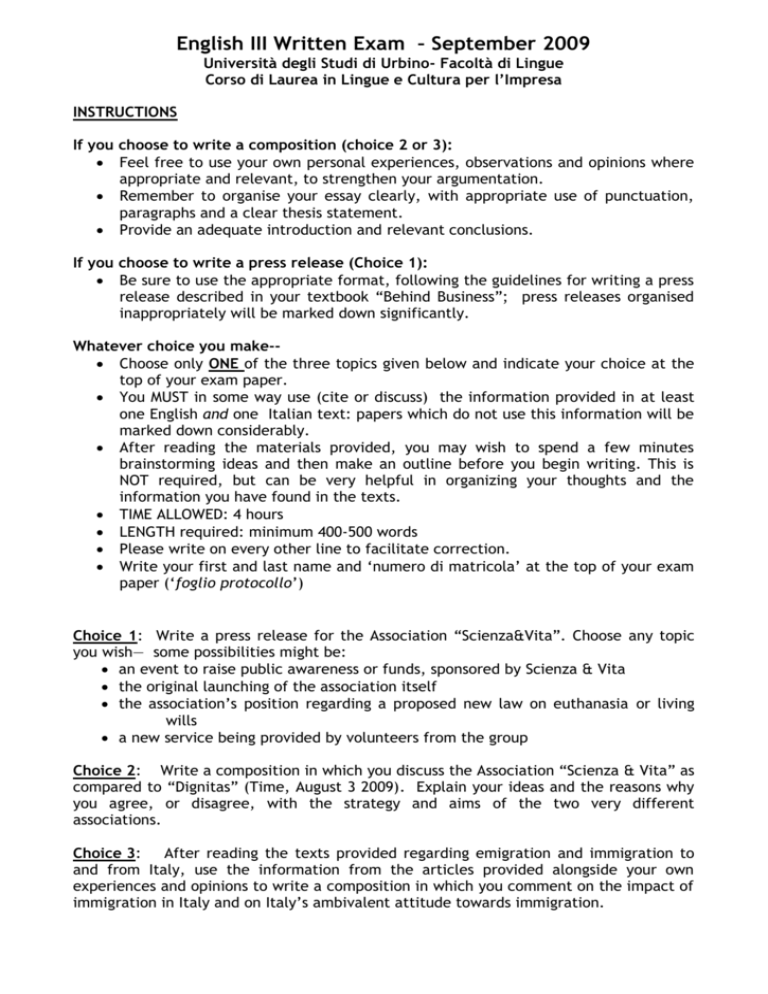
English III Written Exam – September 2009 Università degli Studi di Urbino- Facoltà di Lingue Corso di Laurea in Lingue e Cultura per l’Impresa INSTRUCTIONS If you choose to write a composition (choice 2 or 3): Feel free to use your own personal experiences, observations and opinions where appropriate and relevant, to strengthen your argumentation. Remember to organise your essay clearly, with appropriate use of punctuation, paragraphs and a clear thesis statement. Provide an adequate introduction and relevant conclusions. If you choose to write a press release (Choice 1): Be sure to use the appropriate format, following the guidelines for writing a press release described in your textbook “Behind Business”; press releases organised inappropriately will be marked down significantly. Whatever choice you make- Choose only ONE of the three topics given below and indicate your choice at the top of your exam paper. You MUST in some way use (cite or discuss) the information provided in at least one English and one Italian text: papers which do not use this information will be marked down considerably. After reading the materials provided, you may wish to spend a few minutes brainstorming ideas and then make an outline before you begin writing. This is NOT required, but can be very helpful in organizing your thoughts and the information you have found in the texts. TIME ALLOWED: 4 hours LENGTH required: minimum 400-500 words Please write on every other line to facilitate correction. Write your first and last name and ‘numero di matricola’ at the top of your exam paper (‘foglio protocollo’) Choice 1: Write a press release for the Association “Scienza&Vita”. Choose any topic you wish— some possibilities might be: an event to raise public awareness or funds, sponsored by Scienza & Vita the original launching of the association itself the association’s position regarding a proposed new law on euthanasia or living wills a new service being provided by volunteers from the group Choice 2: Write a composition in which you discuss the Association “Scienza & Vita” as compared to “Dignitas” (Time, August 3 2009). Explain your ideas and the reasons why you agree, or disagree, with the strategy and aims of the two very different associations. Choice 3: After reading the texts provided regarding emigration and immigration to and from Italy, use the information from the articles provided alongside your own experiences and opinions to write a composition in which you comment on the impact of immigration in Italy and on Italy’s ambivalent attitude towards immigration. Health: Health is not only the absence of infirmity and disease but also a state of physical, mental and social well-being. (definition: World Health Organisation) Palliative Care: Palliative care is a fast-growing specialty in medicine. It involves the care of patients who are terminally ill. The World Health Organization says: "The active, total care of patients whose disease is not responsive to curative treatment, control of pain, of other symptoms, and of psychological, social and spiritual problems, is paramount." Palliative care can also be described as an approach that improves the quality of life of patients and their families facing the problem associated with life-threatening illness, through the prevention and relief of suffering by means of early identification and impeccable assessment and treatment of pain and other problems, which can be physical, psychosocial and spiritual in nature. Palliative care: provides relief from pain and other distressing symptoms; affirms life and regards dying as a normal process; intends neither to hasten or postpone death; integrates the psychological and spiritual aspects of patient care; offers a support system to help patients live as actively as possible until death; offers a support system to help the family cope during the patients illness and in their own bereavement; uses a team approach to address the needs of patients and their families, including bereavement counseling, if indicated; will enhance quality of life, and may also positively influence the course of illness; is applicable early in the course of illness, in conjunction with other therapies that are intended to prolong life, such as chemotherapy or radiation therapy, and includes those investigations needed to better understand and manage distressing clinical complications. (definition source: World Health Organisation) A Euthanasia glossary (source: www.bbc.com) Euthanasia has many definitions, some based on whether or not the speaker is in favour of it ! The Pro-Life Alliance defines it as: "Any action or omission intended to end the life of a patient on the grounds that his or her life is not worth living." The Voluntary Euthanasia Society instead looks to the word's Greek origins - " 'eu' and 'thanatos', which together mean 'a good death'" - and say a modern definition is: "A good death brought about by a doctor providing drugs or an injection to bring a peaceful end to the dying process." Three classes of euthanasia can be identified - passive euthanasia, physician-assisted suicide and active euthanasia - although not all groups would acknowledge them as valid terms. Active euthanasia occurs when a doctor administers medication knowing it will shorten a patient's life. Passive euthanasia is an alternative name for withdrawal of treatment - the doctor withholds lifesustaining treatment. Withdrawal of treatment is a hugely controversial area. Many doctors would argue that there reaches a point in the care of a patient where treatment is no longer of any help. In the UK, since the 1989 Bland ruling, basic nutrition and hydration count as treatment. Prolife groups see this as an offence against human rights. Physician-assisted suicide is when a patient asks their doctor to provide them with drugs that will shorten or end life. Living wills allow people to specify what treatment they want if they become mentally incompetent - if they develop dementia, for instance. The UK government is drawing up plans to give them legal force.
